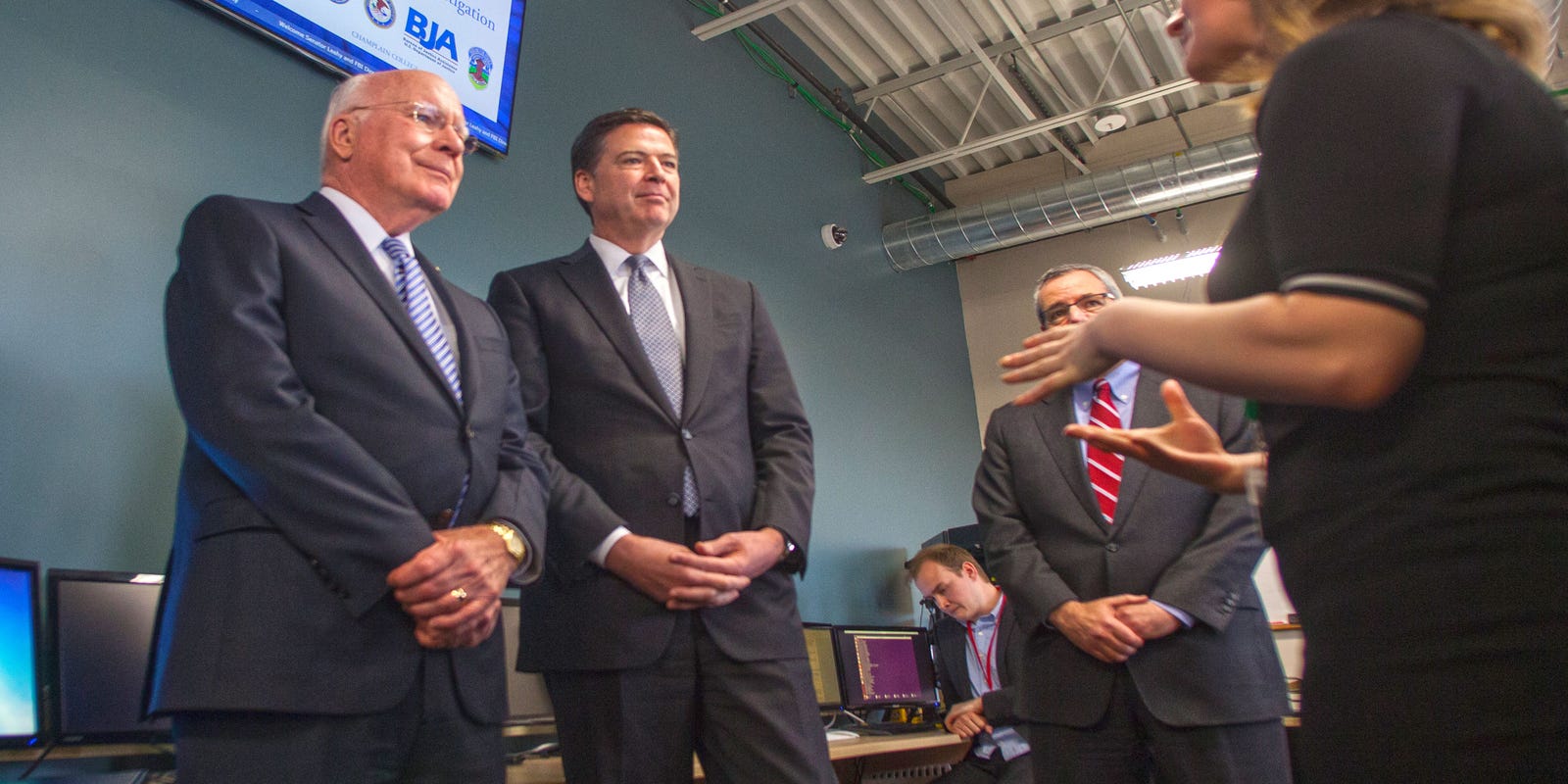It’s our anniversary! It’s been 10 years since the Leahy Center for Digital Forensics & Cybersecurity first opened their doors, building off of Champlain College’s nearly decade-long initiative to educate students and support professionals in the field of digital forensics and cybersecurity. Over that time we’ve seen over 400 students come through our doors and leave as trained professionals, taking on the world. To celebrate, we’d like to take a look back at where we’ve come from, where we are now, and what the future might hold.
Leahy Center might have started back in 2010, Champlain’s drive to train students in the up and coming field of computer forensics started way back in 2002. From this, the Computer and Digital Forensics degree path was born. This gave Champlain College students a shoe in the door to a pivotal field in an increasingly technological world.
The Beginning

In 2006 Champlain College sponsored a number of initiatives and partnerships among academia, the public sector, and the private sector. This was to help support law enforcement as they take on cybercrime. This initiative became the Champlain College Center for Digital Investigation, or the C3DI for short. Under the supervision of Professor Gary Kessler, Champlain College performed a similar task to the Leahy Center now, undertaking research to help all sectors, public, private, and academia, to help defend against growing cyber threats and advance the field of cybersecurity. In order to accomplish this goal, Champlain College worked hard to further develop Vermont’s capacity to combat cybercrime, a field it was previously lacking in. This extended to the Vermont public as well, with reports and research available for public research.
Champlain College, in 2009, opens its Master of Science in Digital Investigation Management, marking a shift in vision to accommodate professionals looking for more knowledge and experience in the management of digital investigation firms. Because of it’s ingenuity, the program solved a crucial problem in the industry. While programs like Champlain’s Cybersecurity undergraduate degree program fostered a burgeoning workforce in the field, the program needed more outreach to protect the public from cyber threats. This management program enabled professionals to do more than offer their services; it helped them start and manage their own firms, to which trained professionals could use to extend their reach to previously unaided areas.
The Start of the LCDI
In June of 2010, Champlain submitted a grant to the U.S. Department of Justice. In September, the D.O.J awarded this grant to the tune of $500,000. The goal was to further bolster Vermont’s digital forensic capacity, working to increase the skill and ability of digital forensic examiners, detectives, law enforcement, and judiciary officials in regards to the acquisition and evaluation of digital forensic evidence. It was this year we saw a shift in leadership, with Jonathan Rajewski and Michal Wilkinson serving as Co-Directors.
2011 saw many changes to the C3DI. With the help of the DoJ grant and additional funding from Champlain College, over 100 students were able to apply to work for the C3DI. The opening of Champlain’s Lakeside Administrative Center gave the program dedicated office space and the utilities to further its goal.

During this time, the C3DI was renamed the Leahy Center for Digital Investigation (LCDI), in honor of Senator Patrick Leahy. Leahy worked to secure over a million dollars in funding for the program through various grants. These grants bolstered the LCDI’s workforce and provided cybersecurity support for the local community. Some of the LCDI’s first projects were systems for the management and backup of digital forensic evidence. These were primarily for Vermont’s Internet Crimes Against Children Task Force (or VTICAC). Also being developed were tools to help the general public. For example, we developed a tool that enabled a user to configure access to and view important information on their Kindle.
What we’ve done so far:

Over the past decade, we’ve done many more projects, including but not limited to:
-Training modules for cybersecurity software
-Benchmarks for digital forensic machines
-Creation, review, and approval of various cybersecurity tools in use by the state of Vermont
…and many more! We’ve hired great staff, such as Project Manager Joseph Williams and Senior Digital Forensics Analyst Alex Caron. We’re proud to say that, by the end of our grant, we created six unique training modules. These programs related to new digital forensic tools and the understanding of forensic reports. We were also able to use our work to secure funding for years to come.
Our Present and Future
In 2019 we saw many shifts in the makeup of the LCDI. For starters, the name changed once more to its current name: The Leahy Center for Digital Forensics and Cybersecurity. This was done to be closer in line with the focus of the program and a wider mission. Adam Goldstein was named the Executive Director of the Leahy Center, with Joseph Williams taking the helm as Managing Director and Alex Caron taking over as Professional Services Director. Students from all across the world have come to work in our program, and we couldn’t be more thankful.

Moving forward, we’re planning on further strengthening our outreach with local partners. In the words of Director Goldstein, the Leahy Center is especially interested in “developing programs where our students are helping design and create training and other educational resources”, supporting the local community while pushing the horizon of digital forensic research.

We’ve come a long way from where we began. We owe it to our amazing students, our spectacular faculty, and everyone who helped make this program a reality. Thank you, and we’ll see you in 2021!
Stay up to date with the Leahy Center by following us on LinkedIn, Twitter, Instagram, and Facebook!